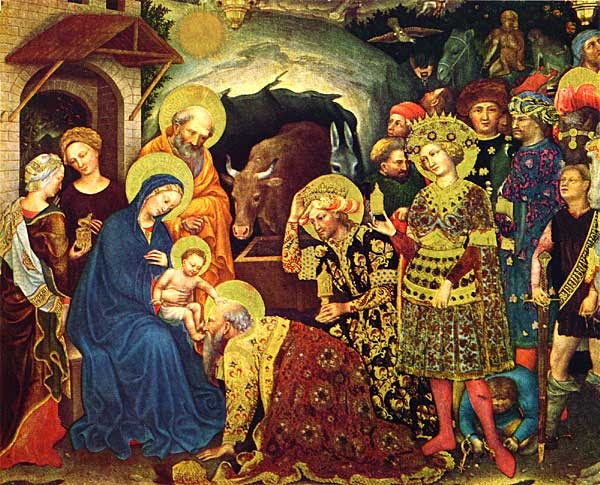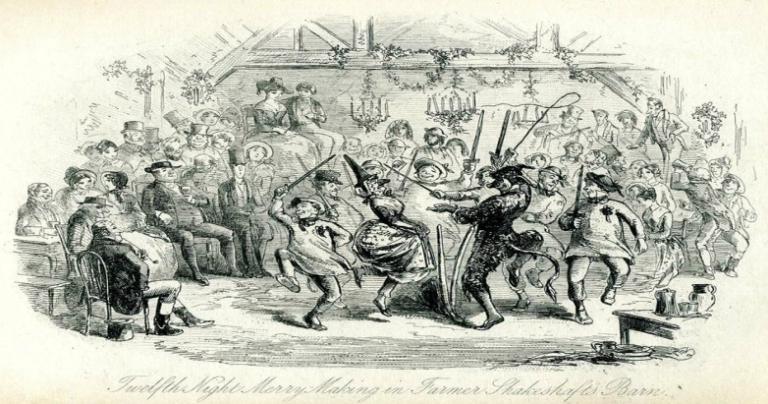The Twelfth Day of Christmas: A Festive Extravaganza in 1624
Related Articles: The Twelfth Day of Christmas: A Festive Extravaganza in 1624
- The Ultimate 12 Days Of Christmas List 2024: A Modern Twist On A Holiday Tradition
- The Twelve Days Of Christmas: A Timeless Carol With A Rich History And Enduring Legacy
- 12 Days Of Christmas Emojis 2024: A Festive Countdown
- The Twelve Days Of Christmas: A Timeless Carol With Enduring Significance
- The Muppets’ Twelve Days Of Christmas: A Festive Extravaganza For 2024
Introduction
In this auspicious occasion, we are delighted to delve into the intriguing topic related to The Twelfth Day of Christmas: A Festive Extravaganza in 1624. Let’s weave interesting information and offer fresh perspectives to the readers.
Table of Content
Video about The Twelfth Day of Christmas: A Festive Extravaganza in 1624
The Twelfth Day of Christmas: A Festive Extravaganza in 1624

The Twelfth Day of Christmas, celebrated on January 6th, marked the culmination of the festive season in 1624. It was a day of great merriments, feasting, and traditional observances that had been passed down through generations.
Origins and Significance
The Twelfth Day of Christmas originated from the Christian tradition of Epiphany, which commemorates the visit of the Magi to the infant Jesus. In medieval Europe, the twelve days following Christmas were known as the "Twelve Days of Christmas," a period of heightened celebration and religious observance.
Festive Preparations
In the weeks leading up to the Twelfth Day, preparations were underway in homes and communities across England. Houses were decorated with greenery, candles, and festive decorations. Special foods were prepared, including mince pies, plum pudding, and wassail, a traditional spiced ale.
The Feast of the Epiphany
On the morning of January 6th, the Feast of the Epiphany was celebrated with a special church service. The service included readings from the Bible, hymns, and prayers. After the service, people would gather for a festive feast.
Traditional Customs
The Twelfth Day of Christmas was marked by a number of traditional customs:
- The Lord of Misrule: A young man was chosen to be the "Lord of Misrule" and lead the revelry. He would wear a mock crown and preside over the festivities.
- Mummers’ Plays: Groups of mummers, dressed in elaborate costumes, would perform traditional plays and dances in the streets.
- Wassailing: People would go from house to house, singing wassail songs and exchanging gifts.
- Bonfires: Bonfires were lit in fields and streets to ward off evil spirits and celebrate the arrival of the new year.
Feasting and Revelry
The Twelfth Day of Christmas was a time for feasting and merriment. People would gather in their homes or at taverns to enjoy a lavish meal. Traditional dishes included roasted meats, pies, and sweetmeats.
After the meal, there would be dancing, singing, and games. People would play cards, dice, or other traditional games of chance.
The End of the Festivities
The Twelfth Day of Christmas marked the end of the festive season. On the following day, people would return to their normal routines and the decorations would be taken down. However, the memories of the festive season would linger for many months to come.
The Twelfth Day of Christmas in 1624
The Twelfth Day of Christmas in 1624 was a particularly joyous occasion. The country was enjoying a period of relative peace and prosperity, and people were eager to celebrate the festive season.
In London, the festivities were particularly elaborate. The streets were decorated with flags and garlands, and bonfires burned brightly throughout the night. The Lord Mayor’s procession was a grand affair, with musicians, dancers, and actors performing along the route.
At the Tower of London, King James I hosted a lavish banquet for his court. The feast included roasted meats, pies, and sweetmeats, as well as a variety of wines and ales.
A Time of Joy and Celebration
The Twelfth Day of Christmas in 1624 was a time of joy and celebration for people of all ages. It was a day to forget the cares of the world and enjoy the company of family and friends. The festive traditions and customs that were observed on this day have been passed down through generations and continue to be celebrated today.








Closure
Thus, we hope this article has provided valuable insights into The Twelfth Day of Christmas: A Festive Extravaganza in 1624. We thank you for taking the time to read this article. See you in our next article!